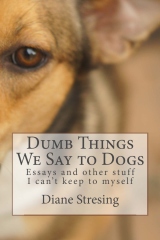What Makes a Good Manager Good?
It may be easier to conjure up an image - or a caricature - of a bad manager than it is to identify what makes a manager good. For the sake of this article, let's define good as "effective and admirable." When I think of the best managers I've had, they were people I wanted to work for, people who inspired me to do my best work, and in some cases, I aspired to be just like them.What raw ingredients make the ideal manager? If any single business school had the answer, well, there wouldn't be quite so many business schools. In fact, many great leaders and just plain-old good managers didn't go to business school.
Marc Cica, an award-winning manager and former director of sales for a Fortune 50 company, has spent much of his career developing future leaders. Two of the top traits he looks for in an effective manager are "industriousness and alertness." In other words, they're hard workers who can anticipate - and prepare for - change.
"There are no short-cuts to success, it is earned by those who work very hard and persevere," Cica says.
But if "hard work" was the only thing necessary to become an effective manager, we wouldn't need business schools at all. Truly effective managers not only work hard, they work hard at the right things. Deciding which things are the right things requires strategic thinking; convincing a team to work with you on those 'right things' requires a little bit of talent and a lot of good habits.
Habits of Good Managers
Here are some of the other raw ingredients, good habits, and skills that many effective managers share.1. Enthusiasm
"A leader's energy and enjoyment, drive, and dedication will stimulate and greatly inspire others," says Cica. While too much emotion in the workplace is distracting (see number 2, below) a little bit of excitement about the task at hand is necessary and helps motivate a team.
2. Poise
"Control of your organization begins with control of oneself. Set the example of personal discipline and expect everyone in the organization to react to unexpected events or adversity in like manner," Cica tells new managers.
3. Genuine kindness
When I think about the worst, and least effective, managers I've know over the years, the first thing that I remember about them is how they treated others. When a manager is respectful of customers, co-workers, and subordinates, chances are the whole organization will do the same - and the entire company will benefit.
4. Team Spirit
Cica builds team spirit on the basketball court (he coaches, too) as well as in the office. Why? Because it's vital to any group of people that work together. Everyone on a team must understand that "the 'star' of the organization is the organization itself, and not any one individual," Cica says.
5. Love of learning, and a willingness to change and grow
Abraham Lincoln said, "I do not think much of a man who does not know more today than he did yesterday." Lincoln didn't go to business school, but his instincts were pretty good. Effective managers must learn constantly and prepare their teams to meet new challenges. Cica believes the best leaders are "life-long learners who create organizations that foster and inspire learning and continuous self-improvement."
If you have some of these basic traits, are willing to put them in action every day, and can convince others to work with you rather than focus only on their individual goals, you'll earn the right to be called a good manager.
~-~ - ~ - ~ - ~ - ~-~
This article was originally published in 2011 in Yahoo! Voices, a now-defunct channel of the Yahoo.com family of websites and other experiments. Surprisingly, my byline hasn't changed a lot since then. (I'm sure I haven't either.) I'm still a business copywriter focusing on Ohio's people and places, and my byline still appears regionally, nationally, and in Northeast Ohio - of all places.


